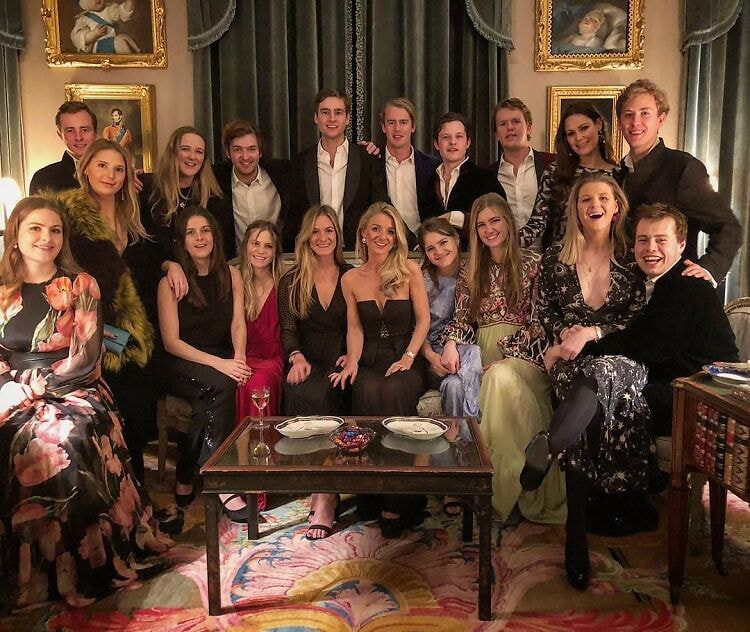Picture: @georgesunderland
06.12.2022
Gentry in the Twenty First Century
The gentry – existing as a capitalist class in noble clothing – took over with an elaborate emphasis upon manner, style, culture and performance. The disposition of an ancient aristocracy enacted in ignoble persons.
.jpg)
By Daniel Smith
Picture: George Spencer Churchill (@georgesunderland)
‘A spectre is haunting Britain – the spectre of gentry.’ We are all denying its existence in our holy alliance with marketized institutions, individualistic outlooks and meritocratic principles – the trinity formula of neo-liberal Britain – but occasionally the ghost of gentry grubs its way into our consciousness. With the leaked Panama Papers we learnt that David Cameron – of Eton, Oxford, Bullingdon Club and gentlemanly manners – owes his fortune to inheritance, kinship and living off the labour of others. While sociologists will and must have a lot to say about the Panama stories, the central one for me is: How are we to make sense of social arrangements which show distinct signs of older, ‘pre-modern’ forms of capital accumulation – inherited wealth and rentier capital – organised through ascriptive criteria – kinship, status honour and old-school ties in a world seemingly beyond such archaic institutions?
It is a fundamental irony that the ‘historical’ study of social class seemingly takes as its founding date somewhere in the middle of the nineteenth century. Consequently sociologists don’t know how to treat the ‘upper classes’ in Britain. While David Cameron has all the trappings of a gentry personage – inherited wealth; elite schooling; gentlemanly manners; impeccable social capital; elite club membership – we know times have changed unrecognisably from the 1700s when his world and culture arose most clearly. There is a need, then, to not relegate the study of ‘the upper-class’ as the study of the rich and powerful, instead we need to look at how the upper-classes exist in relation to culture, history and sensibilities today. The Panama Papers are exceptional. The real question that needs asking is how do the upper-classes relate to other classes in a society whose political values and sensibilities eschew such things as inherited wealth and status. Or, how do the upper-classes relate to others in a world which is not defined by their criteria?
One possible way toward resolving this is to investigate how and why certain elite personages, practices and identities remain despite their incompatibility to the present. Part of the story is to recognise that the upper-classes are not relics of some bygone age. Rather in the formation of class identities in Britain, the upper-classes have and continue to shape distinct sensibilities of belonging and recognition which go beyond economic or political power. Sociologists have been good at identifying how the story of self-making for the middle classes was a historical process of distinguishing themselves from a ‘disgusting working class’ and a ‘mondain aristocracy’ (Lawler, 2005; 2008). However they have failed to see the gentry seeds leftover in this story of change. In the moral economy of class which the middle-classes put in place, they borrowed particular forms of selfhood, identity and conduct which would lay the seeds of a peculiar contradiction in their self-making. They needed models, paragons if you will, against which their self-making would be measured and evaluated – the problem was that such measures and evaluation couldn’t be understood in the terms previously utilised. So ‘breeding’ become ‘respectability’; ‘culture’ become ‘taste’; ‘hospitality’ becomes ‘charity’; the ‘port and charge’ of the gentleman became ‘good manners’. In short, a translation of values occurred which borrowed from an aristocratic world, through which the middle class ‘made themselves’. But in the process of resigning the upper-classes to a world beyond and prior to the new landscape of values, they neglected to see how their cultural universe – the normative language which judges and evaluates ‘everyone else’ – only makes sense, and can only exist, if anchored to and ambivalently placed in relation to such an ‘upper-class’ world.
.jpg)

